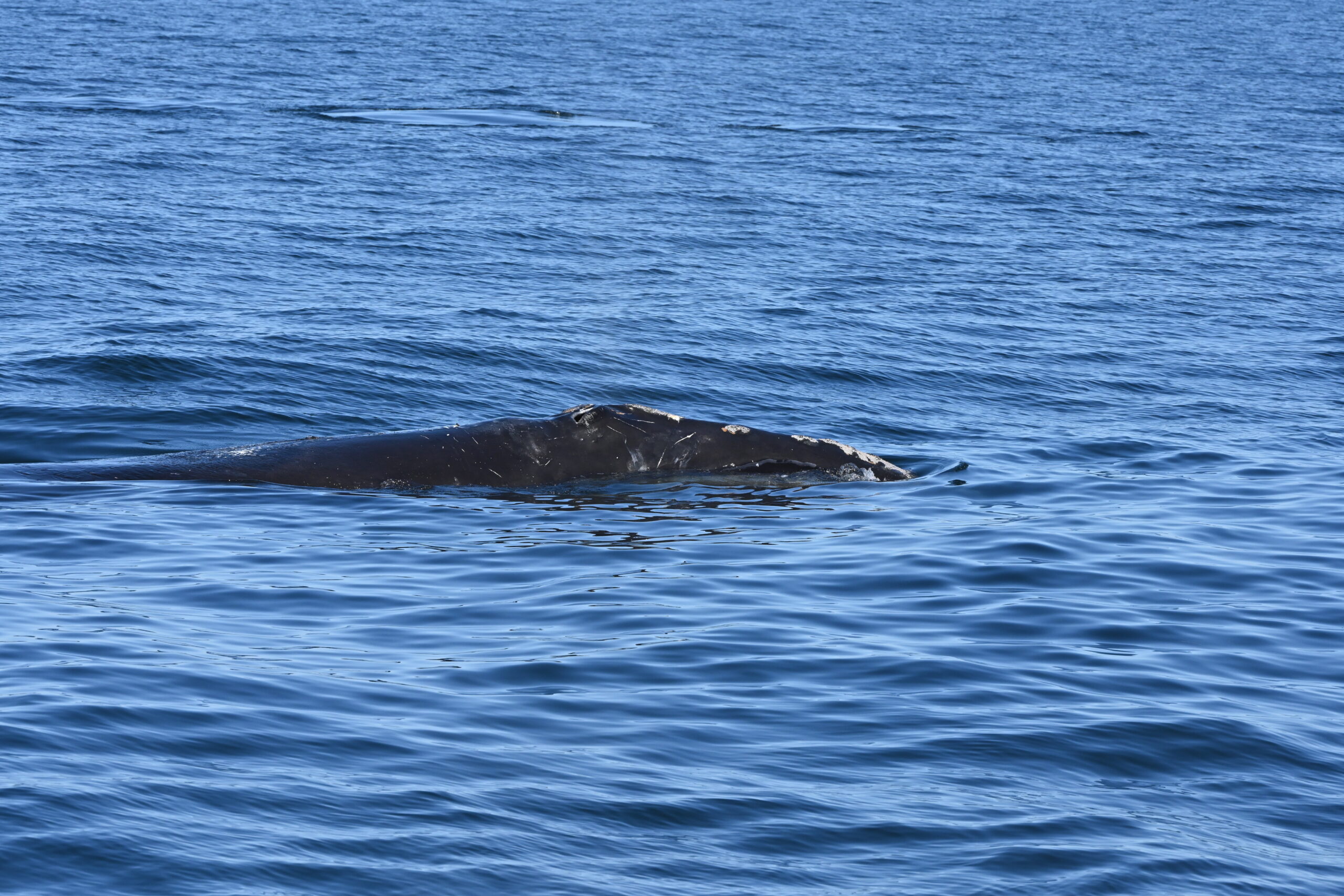
BOSTON, MASS. (May 2024) – In response to news of a female North Atlantic right whale, “Shelagh” (Catalog #4510), sighted in the Gulf of St. Lawrence entangled in fishing gear, the New England Aquarium is releasing the below information that can be attributed to Amy Knowlton, senior scientist in the Anderson Cabot Center for Ocean Life at the New England Aquarium. Recent photos of Shelagh in Cape Cod Bay (seen before this recent entanglement) are available at this link, along with the required credit information.
“The recently documented entanglement of female right whale “Shelagh” (Catalog #4510), seen in the Gulf of St. Lawrence towing fishing gear, represents the fifth entanglement for this whale who was first sighted in 2015 and is of unknown age. She had evidence of two minor entanglement injuries, once in 2015 and again in 2019. She was also actively disentangled on July 5, 2017 in the Gulf of St. Lawrence and suffered moderate injuries from that event. In April 2023, she was sighted in Cape Cod Bay with severe entanglement injuries to her head and around her tail, but no fishing gear was attached. Researchers from the New England Aquarium and Woods Hole Oceanographic Institution last saw Shelagh in Cape Cod Bay on April 8, 2024, her last known sighting before the most recent entanglement.
Shelagh’s fifth entanglement in 10 years highlights the risk right whales are facing every day as these whales overlap with fixed fishing gear throughout their range. Efforts to implement changes broadly to fishing gear, including a shift to ropeless or “on demand” gear and weaker ropes, in both Canada and the U.S. are essential to ensure this species does not go extinct. We are urging both countries to expedite these efforts and to support their fisheries in making this transition that would enable fishing to continue and allow the North Atlantic right whale population to recover.”
Scientists at the New England Aquarium’s Anderson Cabot Center for Ocean Life curate the North Atlantic Right Whale Catalog, an identification database, on behalf of the North Atlantic Right Whale Consortium with support from NOAA Fisheries and others. As part of this work, the Aquarium assesses all photographed sightings to determine if the whale has any external evidence of human impacts, including entanglement. This evidence includes wrapping scars caused by a previous entanglement in fishing gear or, in some cases, the whale may still have the entangling gear attached. From 1980 to the present, over 1,800 entanglement events of right whales have been documented. Of concern is the increasing frequency of moderate and severe injuries from entanglements, which have negative effects on reproduction and survival.
MEDIA CONTACT: Pam Bechtold Snyder, psnyder@neaq.org; 617-686-5068
